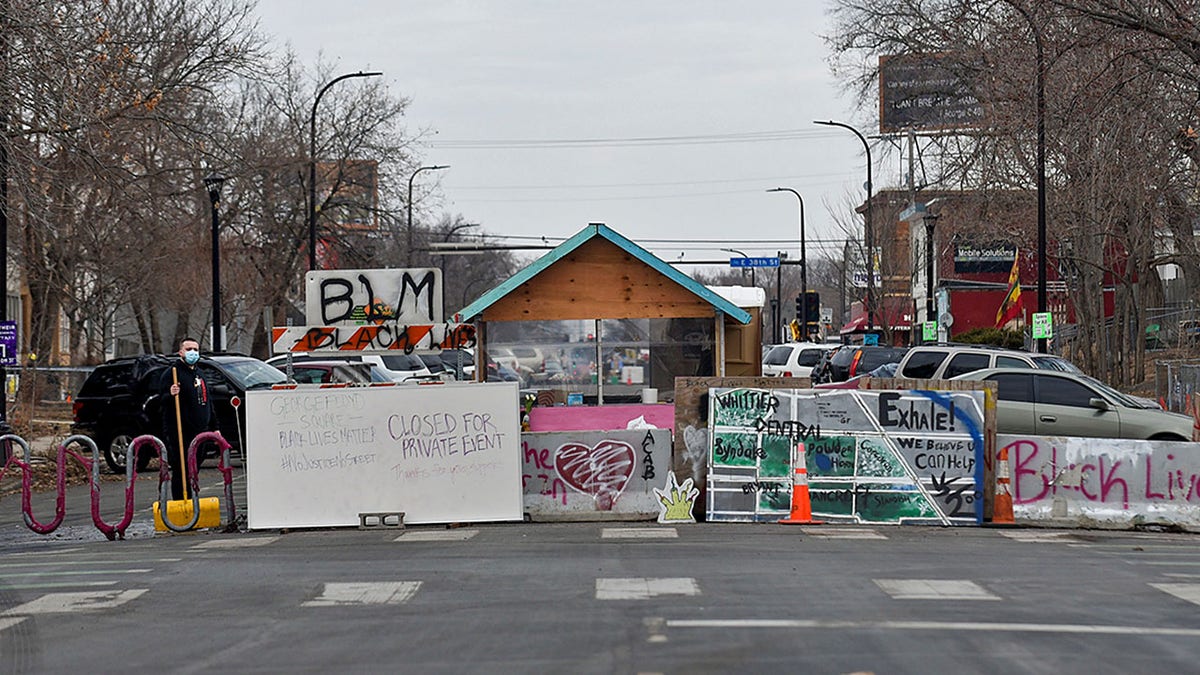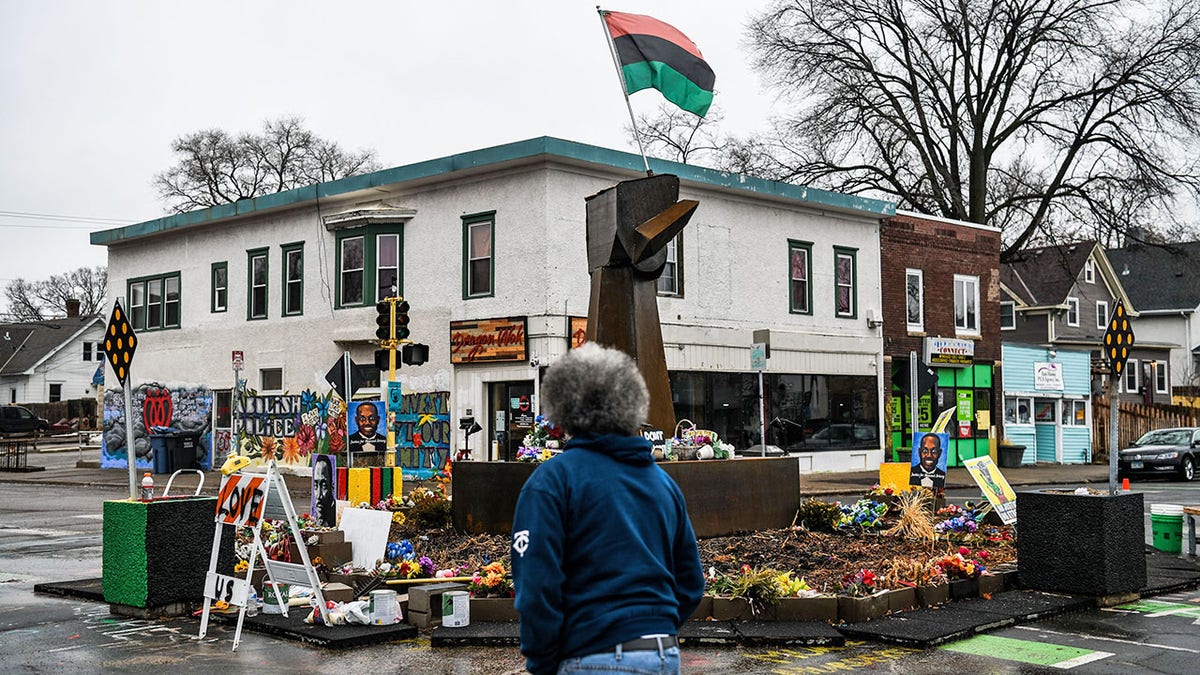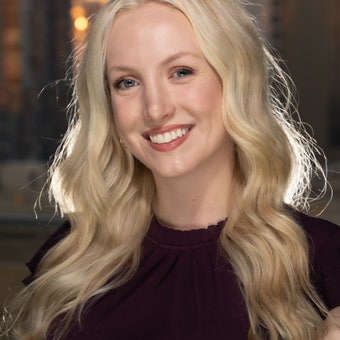Minneapolis protesters set up 'autonomous zone' amid Chauvin jury selection
Retired Police Sgt. Betsy Brantner Smith reacts to law enforcement being barred from George Floyd Square.
The FBI is now helping Minneapolis police monitor an intersection renamed George Floyd Square that has since devolved into an "autonomous zone" that’s brought record levels of violent crime and gun violence to the neighborhood since last May, as local residents and businesses pleaded for help.
The intersection of E. 38th Street and Chicago Avenue -- where a bystander recorded the viral video that showed ex-Minneapolis police officer Derek Chauvin pressing his knee into on Floyd’s neck on May 25, 2020 -- was first converted into a memorial and renamed George Floyd Square after his death. But concrete barricades set up by the city last year to protect demonstrators from traffic now act as the barriers to an "autonomous zone" co-opted by armed individuals declaring law enforcement are unwelcome, as gang activity, drug dealing and gun violence disrupt local business operations.
"The current situation at 38th and Chicago is unacceptable and will not and must not be tolerated," Minneapolis Police Chief Medaria Arradondo said at a press conference Wednesday, announcing that the FBI Minneapolis Field Office, U.S. Attorney's Office District of Minnesota, and the Bureau of Alcohol, Tobacco, Firearms and Explosives (ATF), St. Paul Field Division have now pledged resources and support.
As the city council has pushed to defund the police department over the past year and amid jury selection in Chauvin’s trial, police resources have been pulled from the neighborhood, and the National Police Association made a court filing last month on behalf of local residents to demand Minneapolis officials abide by the city charter in maintaining police patrols in the neighborhood.

A barricade is seen at George Floyd Square, which has been closed to allow members of the community to mourn the killing of a man last Saturday, on the first day of jury selection in the trial of Derek Chauvin, former Minneapolis police officer accused of killing George Floyd, in Minneapolis, Minnesota, March 9, 2021. (REUTERS/Nicholas Pfosi)
"Violence in any part of our city must be addressed and those contributing to the harm of our neighborhoods have to be held accountable," Arradondo said. "We are going to restore peace and safety to that neighborhood, and we’re going to do it collectively with the help and a force multiplier by our partners. And we will not tolerate that any longer, and that intersection must be reopened."
In 2019, there were three nonfatal victims of gunshot wounds. In 2020, that number increased to 18, Arradondo said, providing statistics to illustrate how grave the situation in George Floyd Square has grown. Regarding shot-spotter activations, in 2019, there were seven activations with about 33 rounds detected, he said. In 2020, there was 185 activations with over 700 rounds detected. That is an over 2,543% increase in activations and an over 2,161% increase in terms of the shots detected from 2019-20.
The police chief specifically named one victim of gun violence in that neighborhood – 28-year-old Leneesha Helen Columbus, who was five months pregnant when she was shot and killed in July 2020.
2 DEREK CHAUVIN TRIAL JURORS DISMISSED AFTER $27M GEORGE FLOYD SETTLEMENT MEDIA COVERAGE
"We don’t mention her name, we don’t say her name. And that is a tragedy. And that is a shame," Arradondo said. "We cannot allow groups of individuals to feel that they're emboldened," the police chief continued, referencing violent criminals infiltrating George Floyd Square. "They have to be held accountable. Period. I'm putting them on notice. Enough's enough."
City officials have wavered on a timeline to taking down the concrete barriers, previously preferring to leave them in place until after the trial for Chauvin, but Arradondo said Wednesday that the police department "will dictate that timing and not let the trial dictate that."
Also speaking at the press conference, Acting U.S. Attorney W. Anders Folk said federal law enforcement partners at the FBI, the ATF, U.S. Marshals Service "will play a role in this initiative" directed at driving crime out of the neighborhood.

A man walks near the makeshift memorial of George Floyd before the third day of jury selection begins in the trial of former Minneapolis Police officer Derek Chauvin who is accused of killing Floyd, in Minneapolis, Minnesota on March 10, 2021. (Photo by CHANDAN KHANNA/AFP via Getty Images)
"These are residents, these are business owners and these are faith leaders who are simply trying to make a living, to raise their families, to build up their community and to uphold this space that to so many has become a sacred memorial," Folk said, describing those in the neighborhood affected since the onset of the autonomous zone. "They must be able to do this in peace."
"We will be leveraging our task force resources and intelligence resources in order to identify those who are conspiring to bring danger and harm to the citizens and to the city," Michael Paul, special agent in charge for the FBI Minneapolis Field Office, also added at the press conference.
Last week, the Minneapolis City Council announced a $27 million settlement in the federal lawsuit filed by Floyd’s family, which said $500,000 of which will be donated back to businesses in Minneapolis neighborhood by E. 38th Street and Chicago Avenue.
CLICK HERE TO GET THE FOX NEWS APP
But the timing of the announcement led to Hennepin County Judge Peter Cahill dismissing several jurors in the Chauvin trial who told the court media coverage about the large dollar amount of the settlement affected their ability to be impartial. The defense has filed a motion for continuance, and Cahill said he will decide Friday whether to push the trial back in light of the announcement.
"In general, there is no good timing to settle any case, particularly one as complex and involved and sensitive as this," City Attorney Jim Rowader said in his own news conference Thursday. "There's no guarantee, for instance, that that deal would be available two, four, six, eight weeks from now."









































